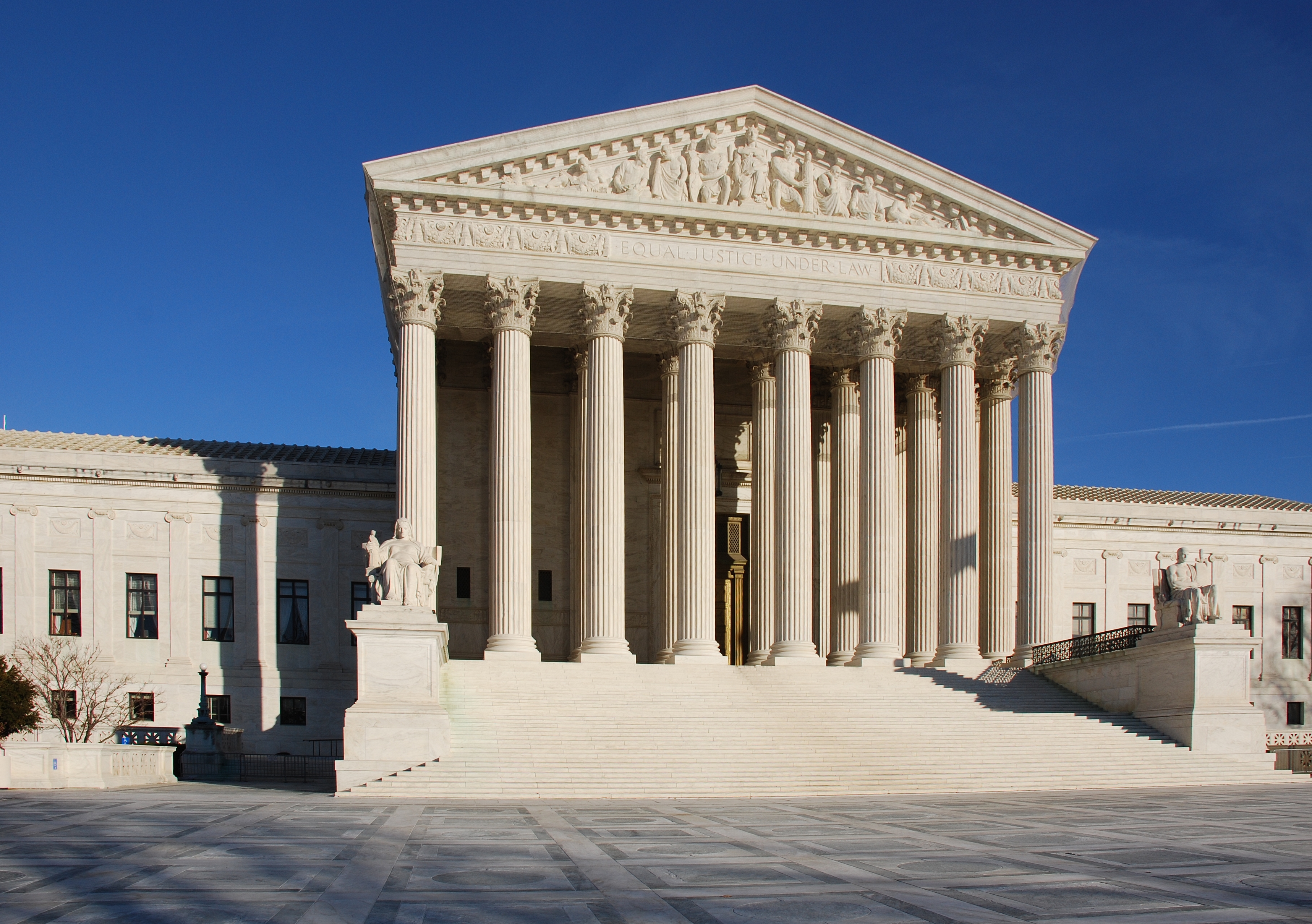Politics
Supreme Court Justices Appear Skeptical Of ‘Bridgegate’ Corruption Convictions

U.S. Supreme Court (By Jarek Tuszyński / CC-BY-SA-3.0 & GDFL, CC BY-SA 3.0, https://commons.wikimedia.org/w/index.php?curid=7564770)
- The Supreme Court heard appeals Tuesday from erstwhile aides to former GOP New Jersey Gov. Chris Christie, who were convicted for their role in the infamous “Bridgegate” scandal.
- The aides, Bridget Kelly and Bill Baroni, conspired to reapportion traffic lanes over the George Washington Bridge, thereby causing gridlock in a town whose mayor refused to support Christie’s reelection bid.
- Kelly and Baroni say their actions were “ill-advised,” but not criminal.
Members of the Supreme Court appeared skeptical Tuesday that onetime aides to former New Jersey Gov. Chris Christie committed a federal crime when they reallocated traffic lanes on the George Washington Bridge to punish a political rival.
Though the outcome was far from certain, a number of justices seemed to think that prosecutors abused federal anti-corruption statutes to obtain indictments against Bill Baroni, a Christie appointee to the Port Authority of New York and New Jersey, and Bridget Kelly, the governor’s deputy chief of staff. Kelly and Baroni say prosecutors are criminalizing bare-knuckle politics.
Christie, whose presidential aspirations were derailed in part by the so-called Bridgegate scandal, joined Kelly in the courtroom Tuesday.
At Kelly’s direction, Baroni reallocated traffic lanes over the George Washington Bridge in September 2013 to cause gridlock in nearby Fort Lee, New Jersey. They did so because Fort Lee Mayor Mark Sokolich, a Democrat, refused to endorse Christie’s reelection. The pair commissioned a bogus traffic study to justify the lane realignment.
Federal fraud laws make it a crime to obtain property by deceit. Prosecutors say Kelly and Baroni did just that. The Port Authority paid out some $3,700 in additional wages to cope with the high volume of traffic. Agency engineers spent 37 hours conducting the phony traffic study, amounting to about $1,900 in labor costs. What’s more, prosecutors say the defendants’ scheme deprived the Port Authority of its exclusive right to allocate traffic lanes.
A jury convicted Kelly and Baroni in federal court of conspiracy, wire fraud and defrauding a federally funded entity in 2016. Kelly received an 18-month jail sentence. A judge sentenced Baroni to 24 months. The 3rd U.S. Circuit Court of Appeals upheld the convictions in 2018.
“The defendants in this case committed fraud by telling a lie to take control over the physical access lanes to the George Washington Bridge and the employee resources necessary to realign them,” Eric Feigin, a Justice Department lawyer, told the high court Tuesday.
Justice Elena Kagan was skeptical. She said the defendants didn’t take property in a tangible sense — they merely realigned traffic lanes. As such, she suggested the Port Authority wasn’t defrauded of anything.
“It’s not appropriating the George Washington Bridge. It’s reallocating lanes on the George Washington Bridge, and I would have thought that … that’s not an appropriation of property,” Kagan said.
Chief Justice John Roberts noted the goal of their scheme was to cause a traffic jam, not procure property for themselves.
“Altering the traffic lane configuration was just the incidental means of achieving the objective,” Roberts added.
Another question in the case is whether Baroni had authority to realign the lanes on his own. The answer to that question is unclear because Baroni shared power with another official pursuant to a longstanding agreement with the state of New York. Both the prosecution and the defense agree, however, that Baroni’s conduct is not criminal if he had power to apportion lanes.
Justice Sonia Sotomayor wondered if the sham traffic study is evidence Baroni did not have unilateral power to reallocate traffic lanes.
“If, in fact, the reality of the situation was that Mr. Baroni couldn’t do this without the executive director’s acquiescence or acceptance, doesn’t that show his lack of authority?” Sotomayor asked.
Kelly’s lawyers say that theory would criminalize a vast swath of government conduct, since politicians often say their self-serving decisions advance the public good.
“Taken seriously, it would allow any federal, state, or local official to be indicted on nothing more than the (ubiquitous) allegation that she lied in claiming to act in the public interest,” Kelly’s lawyers told the justices in a legal filing.
The same filing invokes the 2019 litigation over Commerce Secretary Wilbur Ross’s bid to add a citizenship question to the 2020 census form. In that decision, the court said Ross gave a seemingly contrived explanation for his actions. If the government’s argument is correct, Kelly’s lawyers said, Ross could be prosecuted for fraud.
A decision is expected by June. The case is No. 18-1059 Kelly v. U.S.
s.
All content created by the Daily Caller News Foundation, an independent and nonpartisan newswire service, is available without charge to any legitimate news publisher that can provide a large audience. All republished articles must include our logo, our reporter’s byline and their DCNF affiliation. For any questions about our guidelines or partnering with us, please contact [email protected].

